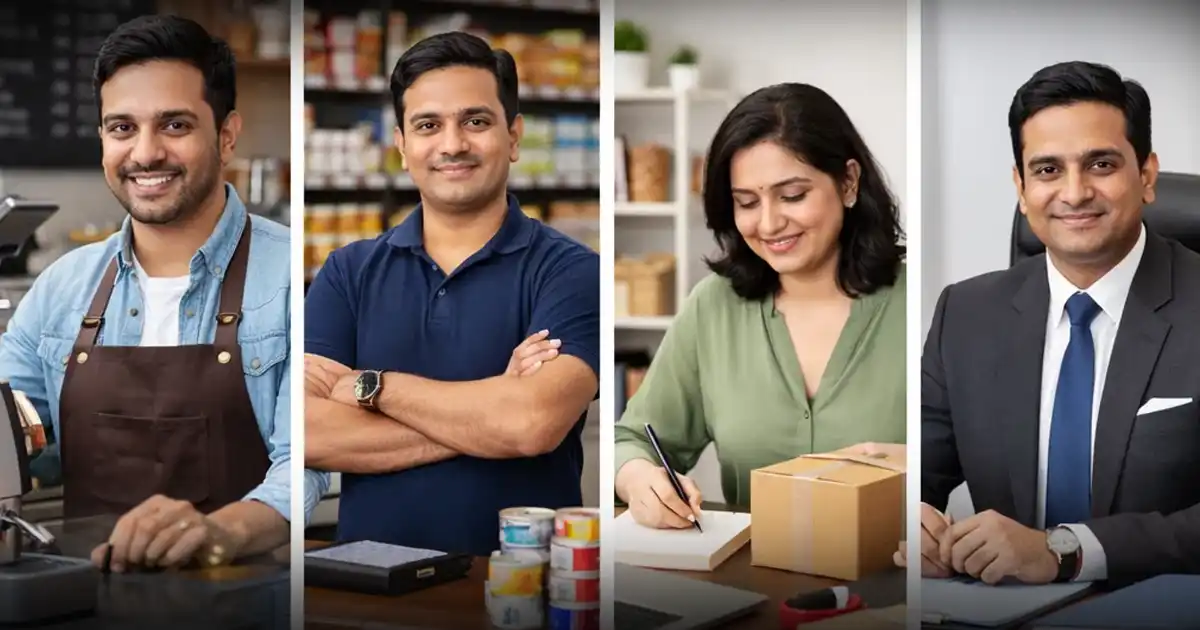
The transformation from basic coffee shops to sophisticated dining experiences has caught the eye of many cafe cultures vying for a unique consumer philosophy in India. A café would require lots of effort considering legal requirements and administrative junk along the way. This will bring you to an elucidating aspect of the legalities involved in starting a cafe business in India, from inception to full-fledged operations.
Understanding Basic Business Structures
The deciding factor in establishing your cafe really comes down to your bases of the right choice for the business structure; only four exist in India- Sole Proprietorship, Partnership, Limited Liability Partnership, or Private Limited Company. The type of business structure you choose has distinct consequences with respect to personal liability, tax liability, and flexibility of operation, with the former leaning heavily in favor of Limited Liability Company. The liability is limited to the shareholders, thereby reducing any risk exposure. An indirect consequence of this limited liability is its higher status than a sole proprietorship when it comes to being perceived by customers as a more professional business setup.
Licensing Requirements & Regulatory Framework
To open a café in India, one is required to get many licenses/permits. The FSSAI license from the Food Safety and Standards Authority of India is one of the basic requirements. Depending upon the annual turnover of the café, one either needs to apply for various types of licenses-a basic registration of up to Rs. 12 lakh, state license between Rs. 12 lakh and Rs. 20 crore, and central license if in excess of Rs. 20 crores.
The Trade License from the Urban Development Authority ensures adherence to health and hygiene codes that cover everything from sanitation in the kitchen to ventilation systems and waste disposal mechanisms to regular pest control measures. A GST registration has to be obtained if the turnover goes beyond Rs. 20 lakhs for the normal category and beyond Rs. 10 lakhs for a few states under special category status, with sound advice being taken in Favor of registration all throughout for the benefits reportedly enjoyed by the tax. Environmental and Infrastructure Compliance.
Environment laws restrictions
Your operation of the modern cafe must abide by strict environmental laws. These have to do with serious issues surrounding waste management, installation of grease traps, and pollution control measures on kitchen exhausts. Most urban centres now require proper standards in organic waste disposal and plastic usage. Besides these, cafes will need to comply with noise pollution laws if they plan to put on music or host events.
Labour laws and employee management
Development of labour laws governing cafe operations in India is fairly encompassing and rendered to protect the interests of both employer and employee. The Shops and Establishments Act forms the basis of regulation over working hours, overtime, leave policies, and other general working conditions. Cafes would have to comply with minimum wage regulations stipulated by states and skill categories alongside proper documentation for attendance, overtime, and leave.
Social security mechanisms are another important aspect, as the ESI program provides health benefits to all workers earning below a certain threshold. The EPF program, which is mandatory for any establishment employing 20 or more people, is followed by regular wipe-outs from the establishment, meant for employees’ retirements. Actualized by the Payment of Gratuity Act, any establishment employing more than 10 people must award a gratuity for employees who have worked five continuous years.
Recent developments in labour laws have added further obligations with regard to the safety of the workplace and prevention of sexual harassment. Internal complaints committees will need to be set up wherever required obviously, and formal grievance redressal procedures should be implemented-which means that a proper and safe working environment must first be maintained. Henceforth, regular training in food safety, hygiene practices, and customer service become essential not just in compliance but also along the service standards.
Also, an employment contract that details clearly the duties of employees must be provided by the cafe. Labour problems would thus be avoided: definitely put clear policies on leave, other personnel benefits, and general conduct of the cafe in which, if not already observed, all employees are very clearly informed. Therefore, for cafes that hire part-timers or temporary workers, failure to comply with this regulation for contract labour and equal treatment for the same work or position should be noted for transmission through the company management and the owners issuing this important documentation to them.
While the fact of tax compliance, intellectual property protection, and labor laws may be dizzying, these aspects are no less than lifelines for the existence and compliance of a cafe business. Regular consultations with tax and legal professionals, keeping an updated record, and ongoing alertness towards any changes of law is a great way to sail through these requirements laid down while building the bedrock of business growth.
Fire safety and emergency preparedness
Fire safety is a major concern for cafes for different reasons. Here, a No Objection Certificate (NOC) needs to be taken from the local fire department and the installation of safety apparatuses. From now onwards, checking and maintaining fire extinguishers, superscription of charge exits, and posting workplace evacuation procedures. Staff training on emergency striking responses and the admittance of safety audits add the requirement of complying with and ensuring customer safety.
Intellectual Property
In these competitive cafe times, protection of intellectual property ought to be very, very seriously paid attention to. Trademark registration is the shield for the identity of your brand, offering protection to your business in not only its name but also logos, slogans, and one-of-a-kind design elements. Doing this will see the establishment of trademark searches; filing applications before the Indian Trademark Registry; constantly checking for any possibility of infringement.
Protection of trade secrets becomes very important to a cafe as its recipes, special brewing methods, or unique business processes come into play. As India has no specific legislation regarding trade secrets, they may be protected through comprehensive contract arrangements and the signing of non-disclosure agreements by their employees and business associates. Copyright also protects such marketing material designs, menu designs, and artwork one might wish to use branding their cafe.
Digital property protection also gained importance. One must ensure the protection of domain names, social media handles, and other online assets aligned with the brand. Cybersecurity measures should also be in place to protect customer data and proprietary information stored in digital formats.
Tax Compliance Framework
The taxation structure in India of cafés is an absolutely complex one that necessitates strict observation and compliance. The main structure revolves around the Goods and Services Tax (GST). The rate depends on how well-built your establishment is-a non-air-conditioned café is generally subjected to 5 % GST, however an air-conditioned venue is liable to the higher rate of 18 %. Marking the distinction is important for the purposes of keeping, collecting, and complying with these taxes. GSTR-1 is regularly going to be filed and a GSTR-3B each month subsequently for all transactions to comply with tax regulations.
Income tax obligation is another major tax compliance aspect. The owners must discharge their quarterly advance payment of tax based on their projected income while managing TDS deductions on rent payments and salaries of employees, apart from keeping impressive books of account, especially as turnover grows close to ₹1 crore-the point where tax audits become mandatory in most cases. The professional tax requirements, depending largely on states, add another layer to taxation, requiring registration and timely payments.
Best Practices and Continual Compliance
In a cafe business, ongoing focus on legal compliance is more demanding. Like a compliance calendar, visible display of all licenses and certificates, regular staff training on food safety, or maintenance of a record of inspections all are better ways to keep on top. Good neighbourhood relations with local authorities as well as notice on any compliance changes are a good way to keep you from getting into trouble in compliance.
Strategic Planning and Professional Support
Taking on-board both legal persons while setting up your business and compliance consultants to take care of any requirements ensures that nothing is left halfway. Regular reviews of your compliance quotient keep your organisation functional and far away from disputes. Though most think that an upfront cost incurred such as having good legal compliance would be excessively high, it brings real value and acts as a good pathway for future growth and protection from penalties and reputational damages.
Conclusion
Starting a cafe business in India requires careful attention to legal and regulatory requirements. The process might seem overwhelming, but systematic planning and professional guidance can effectively navigate these requirements. Remember that compliance isn’t just about meeting legal obligations, it’s about building a foundation for a sustainable and reputable business that can thrive in India’s competitive food service industry. Regular review and updating of compliance measures, along with maintaining good relationships with regulatory authorities, will ensure the long-term success and growth potential of your cafe.




